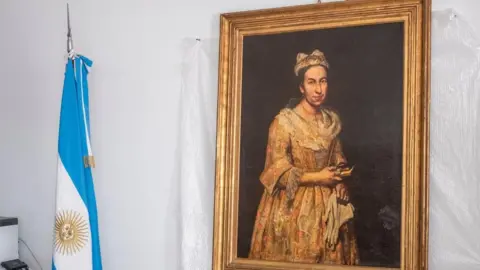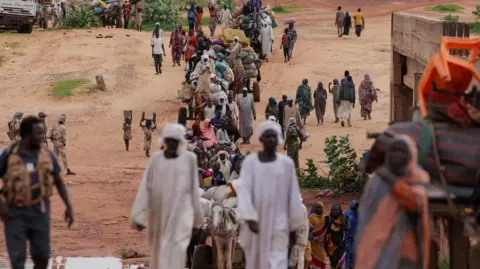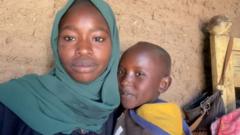The silence is shattered by a gut-wrenching cry, marking a poignant moment at a stage in Sarajevo’s War Theatre, where the world premiere of "Flowers of Srebrenica" unfolds. The production exposes not only the grim events of July 1995 but the ongoing struggle with grief and division that continues to plague Bosnia and Herzegovina three decades later.
In one of the most infamous acts of violence in Europe since World War II, Bosnian-Serb forces executed a brutal massacre in Srebrenica, claiming the lives of over 8,000 Bosnian men and boys, while thousands sought solace under the supposed protection of United Nations forces. Rather than safeguarding the vulnerable, Dutch soldiers stood aside, as General Ratko Mladić orchestrated the horrific events, climaxing in the mass murder of victims whose bodies were disposed of in various graves to cover up the atrocities.
With body parts scattered across different sites, families endure lasting pain, often relying on DNA tests to achieve closure in burying their loved ones. This unsettling reality is vividly depicted in the poignant scenes of "Flowers of Srebrenica."
As the audience in Sarajevo unites in applause, contrasting sentiments echo in the Serb-majority Republika Srpska, where notable political figures openly deny the genocide, despite convictions against Mladić and former political leader Radovan Karadžić in international courts. Selma Alispahić, the play’s leading actress and a former refugee, expressed her dismay at the ongoing denial of well-documented truths, asserting that such narratives only serve to protect the perpetrators benefiting from the conflict.
The 1995 Dayton Peace Agreement quelled warfare but etched deep ethnic divisions into the heart of the nation, segmenting Bosnia into politically distinct entities. Recent actions by Republika Srpska’s president Milorad Dodik, including attempts to withdraw from national institutions, intensify fears among Bosniaks about the revival of tensions reminiscent of the bitter past.
International watchdog Christian Schmidt, currently the High Representative, warns of a need for a robust global military presence to stave off potential unrest. Meanwhile, local events in Sarajevo commemorate the massacre, with hundreds gathering to honor those recently identified for burial at Potočari Cemetery — a stark contrast to the silence on the topic in East Sarajevo, illustrating the stark division in remembrance.
Saša Košarac, a representative of Dodik's government, controversially claims that such commemorations fuel division rather than reconciliation, suggesting all sides of the conflict deserve acknowledgment for their suffering.
Despite the challenges, many individuals remain committed to solidarity with Srebrenica, evident in the number of people participating in commemorative activities. However, as sentiments of fear linger, particularly for Bosniaks returning to areas associated with the massacre, the future remains uncertain amidst rising ethnic tensions stirred by political manoeuvrings.
Milorad Dodik's tactics, which exploit historical grievance, perpetuate strife over healing, leaving the community grappling with the need for collective progress while feeling vulnerable in an environment rekindled by memories of past horrors.






















